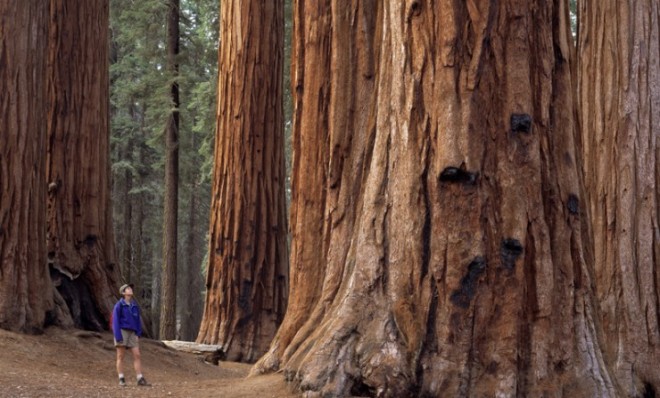The frighteningly rapid die-off of the world's oldest trees
Across the globe, our biggest and oldest trees are disappearing at 10 times the normal rate — and their demise could spell ecological disaster


A free daily email with the biggest news stories of the day – and the best features from TheWeek.com
You are now subscribed
Your newsletter sign-up was successful
If you've never been to California to see its giant redwoods, you should probably go soon. It might be only a matter of time before they're all gone. Research released Friday indicates that the world's oldest trees are dying at an alarming rate. "It is a very, very disturbing trend," says lead researcher William Laurance of James Cook University. "We are talking about the loss of the biggest living organisms on the planet, of the largest flowering plants on the planet, of organisms that play a key role in regulating and enriching our world."
For the study, researchers examined Swedish forestry records starting in the 1860s and found that big trees ranging in age from 100 to 300 years old — including American pines and California's magnificent redwoods — are dying at 10 times the normal rate. And it's not just happening in the states. Major losses have been observed at all latitudes, all over the world, a symptom of the earth's rapidly changing climate combined with aggressive logging and land development.
Scientists find this trend so disturbing because big, old trees play an important — critical, in fact — ecological role by providing homes for forest creatures. In some ecosystems, the trees shelter up to 30 percent of all birds and animals, and without them, these creatures could face extinction. The trees also influence local rainfall and retain massive amounts of carbon. Their absence would hasten the already rampant effects of climate change and "have substantial impacts on biodiversity and forest ecology," Laurance says.
The Week
Escape your echo chamber. Get the facts behind the news, plus analysis from multiple perspectives.

Sign up for The Week's Free Newsletters
From our morning news briefing to a weekly Good News Newsletter, get the best of The Week delivered directly to your inbox.
From our morning news briefing to a weekly Good News Newsletter, get the best of The Week delivered directly to your inbox.
So what's to be done? Scientists insist policies need to be put in place to protect existing trees and encourage the growth of new ones. "Targeted research is urgently needed to better understand the key threats to their existence and to devise strategies to counter them," the study says. "Without such initiatives, these iconic organisms and the many species dependent on them could be greatly diminished or lost altogether."
Sources: AFP, Phys.org, Business Standard
A free daily email with the biggest news stories of the day – and the best features from TheWeek.com
Jessica Hullinger is a writer and former deputy editor of The Week Digital. Originally from the American Midwest, she completed a degree in journalism at Indiana University Bloomington before relocating to New York City, where she pursued a career in media. After joining The Week as an intern in 2010, she served as the title’s audience development manager, senior editor and deputy editor, as well as a regular guest on “The Week Unwrapped” podcast. Her writing has featured in other publications including Popular Science, Fast Company, Fortune, and Self magazine, and she loves covering science and climate-related issues.
